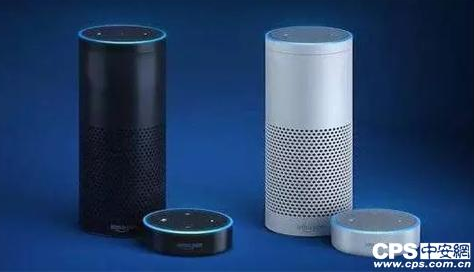A few days ago, an extremely weird incident occurred in the science and technology industry. Amazon's artificial intelligence assistant Alexa suddenly laughed like a witch when it was not awakened. Some users were ordering Alexa to play music or give orders. When other commands are made, Alexa laughs. These videos circulated from Twitter to Weibo. Although Amazon later explained and improved them, they still affected the heartbeat of the world. Smart speakers can be said to be the earliest smart home products, and they are currently the most popular choice. If ordinary people consider smart appliances, then smart speakers are also the most approachable choice. At present, large companies such as Google, Amazon, and Apple have launched smart speaker products overseas. Domestic companies such as JD.com, Tmall, and Xiaomi have entered the market and launched smart speaker products. Other less well-known companies are also the first choice when making smart products. . ★ Giants have entered the game to seize the market ★ The development of smart speakers began in 2014. Amazon released Echo at the end of that year, which quickly detonated this new market and became a well-deserved global overlord of smart speakers. In May 2015, at the first Asian Consumer Electronics Show, the first product Dingdong smart speaker after JD.com and iFlytek established a joint venture was officially released. Due to JD’s own platform advantages, Dingdong speakers were able to cut into other platforms under the platform. Smart home products, leading the domestic smart speaker market. In 2016, Google released Google Home with smart Q&A as a breakthrough. From November 2016 to April 2017, Google grabbed 23.8% of the smart speaker market share from Amazon. In 2017, smart speakers have attracted many giants to compete. In the first half of 2017, Microsoft announced the launch of a smart speaker Invoke with Harman Kardon; in June, at the Apple wwdc2017 conference, Apple released the HomePod smart speaker with built-in Siri; subsequently, the domestic giant Alibaba also joined the smart speaker melee and launched the first A generation of smart speakers Tmall Genie X1. ★ The smart speaker market is developing rapidly ★ The data shows that in 2015, the retail volume of smart speakers in China was only 10,000 units, which increased to 60,000 units in 2016. The cumulative sales from January to August 2017 exceeded 100,000 units. During the Double Eleven period, product sales reached a new high. Domestic smart speakers The explosive growth of the speaker market is amazing. As an ideal entry point for artificial intelligence, smart speakers have attracted much attention. Some people in the industry even said that smart speakers are not just speakers, they are likely to become the entrance to the next generation of human-computer interaction. At the Mobile World Congress (MWC) held not long ago, Chen Guanzhou, General Manager of MediaTek, also gave a brief explanation of the domestic situation. Chen Guanzhou believes that in the next two to three years, the average annual growth rate of smart speakers can reach a high growth rate of 30%, which is the next market size that has the opportunity to challenge hundreds of millions of units. At the same time, he also said that in 2017, smart speakers have sprung up in various technological products. It is just an initial result. Smart speakers will slowly evolve, adding various functions such as voice and vision to make this product exist for a long time. ★ Bottlenecks that smart speakers cannot avoid ★ China has not yet established a complete smart home ecosystem, and problems such as fragmented usage scenarios and complex hardware operations have not been resolved. Consumers cannot appreciate the wisdom and convenience of smart homes. For example, consumers in the West who use open kitchens and living rooms have the habit of using speakers in the living room, while the cooking environment in China's kitchens is noisy and heavy with oily smoke. The kitchen and living room are relatively closed, and the frequency of household use of speakers is not high. In addition, smart homes lack supporting regulations and unified standards, products vary in quality and consumer experience is poor. At present, consumers use smart speakers with more functions in terms of content. The Chinese smart home market needs a single product that can directly hit consumers' pain points to subvert consumer thinking and allow consumers to form smart home thinking. Manufacturers have gathered together voice interaction technology and neglected the consumer experience. Poor far-field recognition, high false arousal rate, unstable continuous dialogue function, and poor semantic understanding are the main reasons for consumer dissatisfaction. Although there has been an explosive growth in the number of smart speakers, the homogeneity of products is serious, and the household penetration rate is not high. Many consumers just experience "new products" with a curious mind, and more use smart speakers as decorations. As a household must-have. Therefore, companies should focus on consumer experience, solve consumer pain points, and create smart speakers that are truly practical and necessary for the home to break through the market bottleneck. ★ Summary ★ Artificial intelligence is a hot spot in the past two years. Because intelligent technology can free human operations and improve work and life efficiency, it is also very useful in the field of home appliances that people come into contact with every day. Today, we can already see more and more smart home appliances emerge on the market. Smart speakers are just one of the representatives. More products are becoming smart. This is an unstoppable trend. 45W Pd Charger,Pd 45W Fast Charger,45W Pd Wall Charger,Plug Pd 45W Fast Charger Guangdong Mingxin Power Technologies Co.,Ltd. , https://www.mxpowersupply.com